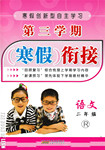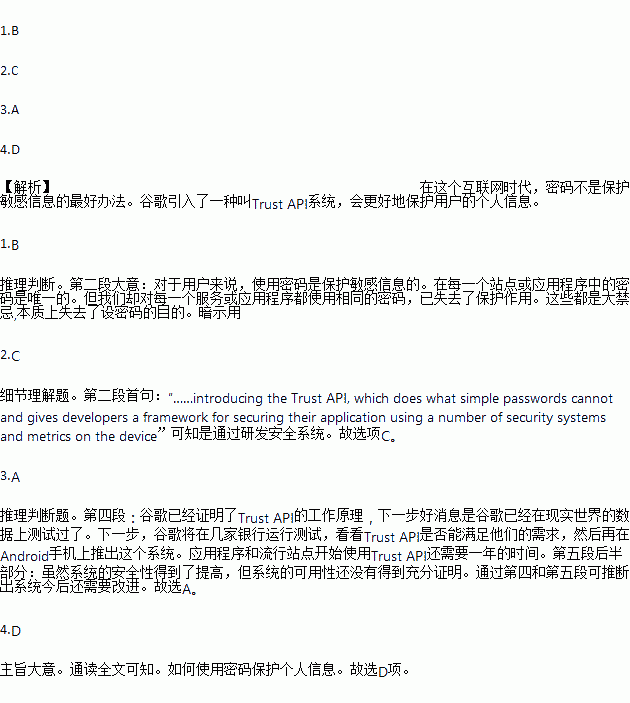题目内容
When it comes to the Internet, people talk about the password most. Actually, it’s been under fire for a long time. Research has shown that passwords are not a very good way to protect sensitive information.
People would use some random characters, numbers and symbols. Furthermore, a unique password would be used for every site or application the user uses. Unfortunately, the longer and more complex passwords become, the more people are likely to forger them. Therefore, they use the same password for every service or application. These are all big no-noes and essentially defeat the purpose of a password.
Google is trying to kill off passwords on Android devices by introducing the Trust API, which does what simple passwords cannot and gives developers a framework for securing their application using a number of security systems and metrics(衡量标准)on the device. A Trust Score will be generated based on a number of metrics including your device location, face scanning, fingerprints, and the things like your typing speed or the way you speak. Taken one at a time, these metrics are not secure. But taken together, these metrics will help recognize the real “you”.
The good news is that Google has already been testing this on real world data. Google has proven the Trust API works. Next Google will run tests will some banks to see if the Trust API meets their needs before rolling out the system on Android phones later. It may take another year for apps and popular sites to start using the Trust API.
This is a pretty exciting change. Passwords have been around for a lone time. Although the security of systems has been improved, the usability of systems hasn’t been proved much. Google appears to have the best of them. Maybe that never-ending conflict between security and convenience will be able to take a break once the Trust system comes out.
1.What is implied in the underlined sentence in Para. 2?
A. Users make mistakes in using passwords.
B. Users should know the purpose of passwords.
C. Users have learnt to say no to their passwords.
D. Users misunderstand the meaning of passwords.
2.How is the key part of the Trust API generated?
A. By taking one metric at a time.
B. By combining various metrics.
C. By developing security systems.
D. By analyzing complex passwords.
3.What can we know about the Trust system from the text?
A. It needs to be improved in the future.
B. It hasn’t been proven to be effective.
C. It will be used on Android devices first.
D. It is secure and convenient for the users.
4.What would be the best title for the text?
A. How does Google develop the Trust API?
B. Will the Trust API meet the users’ needs?
C. Will passwords soon be a thing of the past?
D. How do passwords protect personal information?
 寒假创新型自主学习第三学期寒假衔接系列答案
寒假创新型自主学习第三学期寒假衔接系列答案
